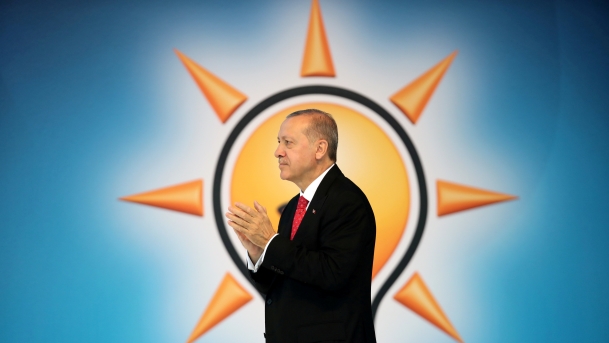
The On 13 September 2019, former Prime Minister Ahmet Davuto?lu resigned from the Justice and Development Party (AKP), preempting the party’s impending decision to expel him, and announced he would form a new political party.
Although the timing came as a surprise, Davuto?lu’s exit was not unexpected. There have been rumblings of internal AKP dissent for at least the last two years, since Turkey’s constitution was amended to establish a presidential, rather than parliamentary, system of government. In recent months, it was reported that several former AKP luminaries, most significantly Ali Babacan, the worker of Turkey’s economic miracle, and former President Abdullah Gül, were mulling the creation of a new centre-right party that would not necessarily identify as Islamist.
There was speculation that Davuto?lu would join them, but it soon became apparent that he represents a different strand of dissent within the AKP. Whereas the Babacan-Gül faction seems primarily interested creating a political vehicle that can take down President Recep Tayyip Erdogan and end his dominance of Turkish political life, Davuto?lu has demonstrated a keener interest in reforming the AKP project, most notably in a detailed statement following the AKP’s electoral losses in the March municipal elections, in which he spoke critically of the erosion of the party’s value system and the growing crisis of trust between the party and its base.
The two dissident factions represent different constituencies as well. Davuto?lu does not have the backing of many top-tier AKP leaders, but has widespread support among the party’s middle-tier organisers and activists and many of its provincial branches. In contrast, Babacan and Gül have assembled an impressive array of AKP founders and former leading lights to give their new party popular legitimacy, but they lack an activist base and strong grassroots support.
It is still unclear whether the two strands will come together or stake out separate paths, but in either case, there are questions about the viability and competitiveness of a new centre-right breakaway party(ies). It is true that Turkish splinter parties have proved wildly successful in the past, the AKP itself being a prime example. The Good Party, established by defectors from the National Movement Party (MHP) in 2017, has also flourished. But the circumstances are different here. Davuto?lu and Babacan, especially if they form separate parties, are setting themselves against a party that has ruled since 2002, still enjoys broad popular support and a parliamentary majority despite some losses, runs a massive, well-oiled party machine, and is fronted by a charismatic leader, who is also the president.
On the other hand, the economic crisis in Turkey is hurting the AKP, and its popular support has undoubtedly eroded, particularly among conservative, middle-class professionals, urban dwellers and the Kurdish community. The trend became visible in the 2017 referendum on the constitutional amendments and continued to gain steam in the subsequent parliamentary, presidential and municipal elections.
However the partisan drama plays out, these developments suggest Turkey is entering a new era of political fragmentation, leaving behind a relatively long period of political and partisan stability ushered in by the AKP itself. The AKP won the 2002 parliamentary elections just a year after its establishment and went on to win every election thereafter. As it asserted its political dominance, it claimed the centre-right field of Turkish politics and crowded out competitors, and it ultimately brought a more cohesive order to a political landscape long plagued by factious politics and fragile coalition governments.
What this will mean for Turkish politics is uncertain. The next elections are not until 2023, which gives the AKP time to address the challenges it faces and reverse its recent electoral slide. The presidential system may also help contain the impact of partisan fragmentation, but a president governing without a parliamentary majority raises its own set of questions, and there is always the possibility of early elections or even renewed popular momentum against the presidential system. Turkish politics is entering a transitional phase in which anything might happen.
*This is a summary of a policy brief originally written in Arabic, available here: http://studies.aljazeera.net/ar/positionestimate/2019/09/190917072017164.html